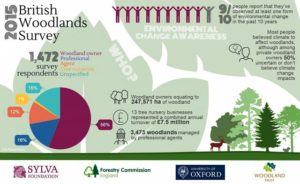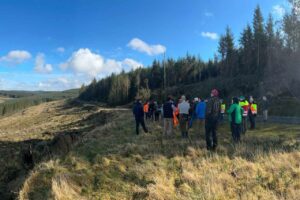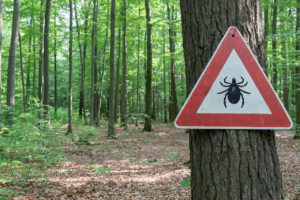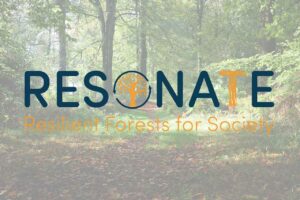Provisional Results from National Survey on Woodland Resilience
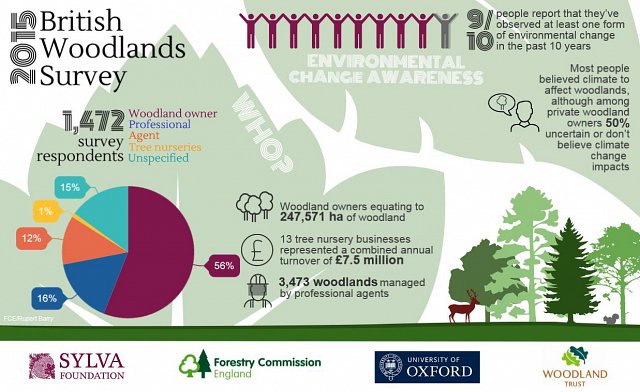
Provisional results from the British Woodlands Survey 2015 ‒ this year on the themes of resilience and environmental change ‒ were released at the RFS/Woodland Trust conference on October 1st.
9/10 woodland owners and other forestry professionals reported at least one form of impact from environmental change in the past 10 years. Woodland owners reported increases in vertebrate pests such as deer and squirrels while among professional managers and agents, pathogens and pests were the most commonly-reported impact on the woodlands that they manage.
1499 people responded to survey, co-ordinated by the Sylva Foundation: 56% were private woodland owners with professional agents responsible for managing 3473 woodlands and 13 specialist tree nurseries with a combined annual turnover of more than £7.5m also taking part. It captured the opinions and activities of those responsible for managing 11% of all privately-owned woodlands in the UK.
The survey results emphasised that in the past only 44% had specified provenance (origin) when buying trees for new planting. This highlights there may be a lack of awareness of the importance of provenance, and tree genetic diversity in general, when planning resilient woodlands. 69% of owners stated a preference in future for sourcing material grown in UK nurseries, possibly reflecting recent issues around infected imported plants. There also appears to be an appetite among private woodland owners towards a move from the current mix of native and non-native tree species to a 6% increase in native species compared to non-native species. Such as change was not supported by forestry professionals.
Looking to the future, most respondents believe that climate change will significantly affect our forests, although there is considerable uncertainty among private woodland owners among whom more than 50% are uncertain or don’t believe it will affect forests in the future.
Information gathered in the survey will be used by organisations, policy makers and researchers to help improve the resilience of the nation’s forests, and how better support can be provided to woodland owners and managers. The results will also inform the government’s National Adaptation Programme for England. Follow-up qualitative research is also planned.
A full report will be published before the end of the year and made freely available at www.sylva.org.uk/bws

